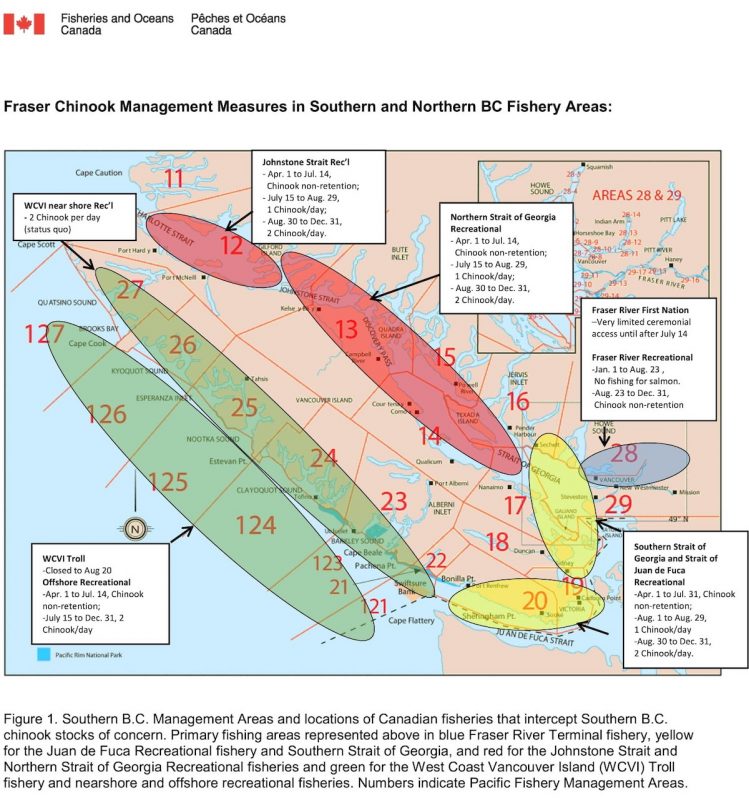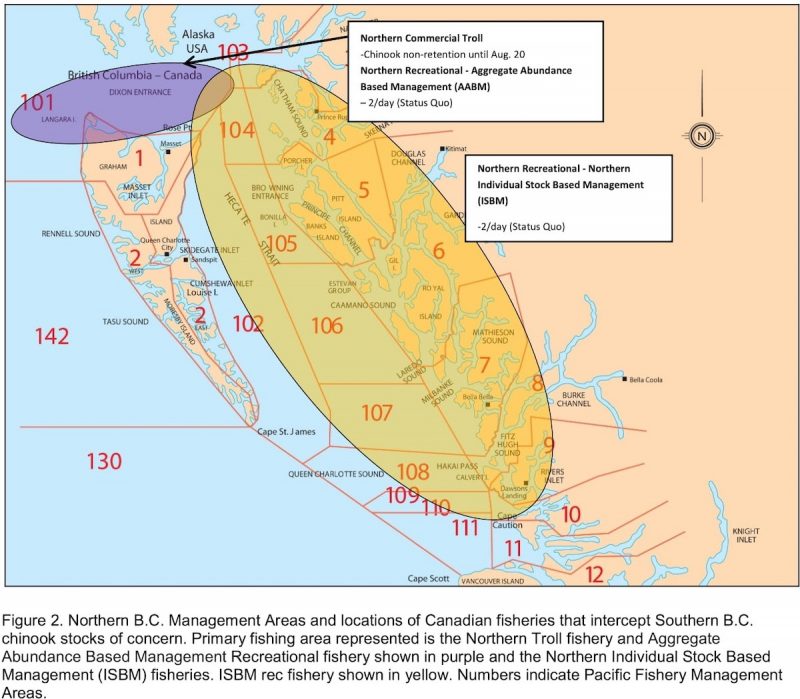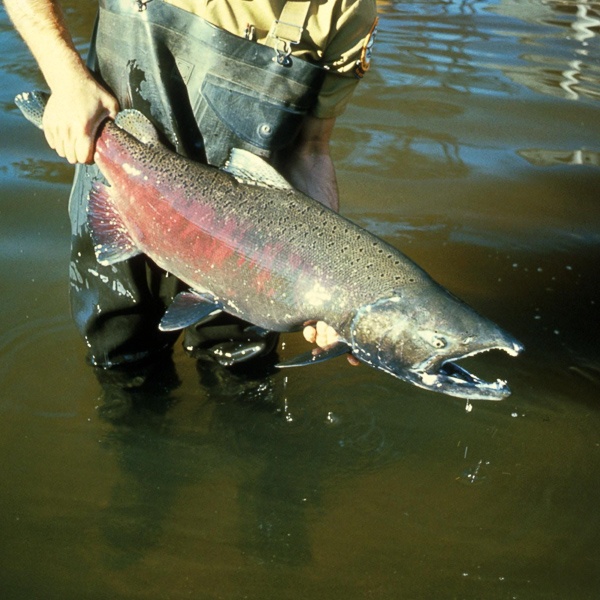Sweeping closures in British Columbia for 2019 fishing season
New measures will be economically devastating for coastal communities and sports fishing industry
By Fabian Dawson
SeaWestNews
Declaring it is time for bold action, the government today announced sweeping fishery closures across British Columbia to reverse the drastic decline of the iconic Fraser River Chinook populations.
“The measures I am announcing today, as part of a comprehensive plan to protect wild Pacific salmon, are significant, necessary and difficult,” said Jonathan Wilkinson, Minister of Fisheries, Oceans and the Canadian Coast Guard.
“The science is clear: Pacific Chinook salmon are in a critical state. Without immediate action, this species could be lost forever,” he said.
The new management measures announced today for the 2019 fishing season will include;
• Commercial fishing: Commercial troll fisheries for Chinook will be closed until August 20 in Northern BC, and August 1st on the West Coast of Vancouver Island to avoid impacting Fraser Chinook stocks and to support conservation priorities.
• Recreational fishing: The 2019 management measures for recreational fisheries where at risk Chinook stocks may be encountered are designed to maximize returns of these at risk Chinook to their spawning grounds. Opportunities to harvest Chinook will be provided later in the season to support the long-term viability of the recreational industry. The 2019 measures include:
• Non-retention of Chinook in Southern BC ( Johnstone Strait and Northern Strait of Georgia) until July 14; a daily limit of one (1) Chinook per person per day from July 15 until August 29, and two (2) per person per day from Aug 30th until December 31. Non-retention of Chinook in the Strait Juan de Fuca and Southern Strait of Georgia until July 31; retention of one (1) Chinook per person per day as of August 1 until August 29th, and two (2) per person per day from Aug 30th until December 31.
• West Coast Vancouver Island offshore areas will have non-retention of Chinook until July 14 followed by a limit of two (2) Chinook per day from July 15 to December 31. West Coast Vancouver Island inshore waters will remain at two (2) Chinook per day for the season once at-risk Chinook stocks have passed through, to support the long term viability of the salmon and of the recreational fishery.
• Fraser River recreational fisheries will remain closed to salmon fishing until at least August 23, and opportunities will be informed by any other conservation issues (coho, steelhead, etc).
• Retention of two (2) Chinook per day continues to be permitted in Northern BC and inshore areas of the West Coast of Vancouver Island. Other opportunities may be identified and announced in season where abundance permits.
• An overall reduction in the total annual limit for Chinook that can be retained per person in a season from 30 fish to 10. Recreational fisheries for other species will continue. Please see the Department’s web-site for local regulations.
• First Nations food, social and ceremonial fisheries: these fisheries, which have a constitutionally protected priority, will not commence until July 15 – concurrent with the opening of the recreational retention fishery.
“These new measures are difficult, but they are necessary to address Fraser River Chinook decline,” said Wilkinson.
“A continued decline would irrevocably harm species that depend on the survival of Chinook salmon, such as the Southern Resident killer whale. In addition, it would permanently affect the culture, heritage and livelihoods of Indigenous communities and permanently eliminate many jobs in the recreational and commercial fishing industries.”
Prior to the announcement, the B.C. Chamber of Commerce said the proposed closures to B.C.’s recreational fisheries to preserve chinook salmon — an important prey species for orcas — would be economically devastating for both Island and Mainland communities that rely on marine-based tourism businesses.
These industries generate more than $1.1 billion in revenue, and employ more than 9,000 British Columbians in stable, well-paying jobs — while harvesting less than 0.5 per cent of Fraser-spawned chinook salmon, the chamber said.
The measures will hit the sport fishing sector particularly hard, the Sport Fishing Institute of B.C. said.


RELATED STORIES
Pressure
mounts for First Nations seal harvest in B.C. waters
Noise about whales and salmon is not sound science say scientists
